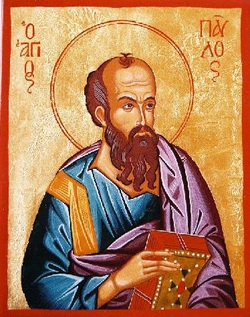
The USCCB’s document doesn’t mention any of the Church’s significant pre-Vatican 2 teaching regarding religious freedom. There is one citation to a speech given by the 19th century American Cardinal James Gibbons wherein he gives the insignificant non-infallible assertion that in “in the genial atmosphere of liberty [the Church] blossoms like a rose.” [1] However nowhere in the document do you hear of the landmark infallible teaching of the encyclical Quanta Cura by Blessed Pope Pius IX wherein he states that:
[it is] against the doctrine of Scripture, of the Church, and of the Holy
Fathers, to assert that "that is the best condition of civil society, in
which no duty is recognized, as attached to the civil power, of
restraining.... offenders against the Catholic religion, except so far
as public peace may require. [2]
And furthermore, the USCCB’s document does not mention any of the other numerous Papal pronouncements condemning immoderate religious freedom. You will not find any reference to Pope Pius VII’s description of such liberty as “a disastrous and ever-to-be-deplored heresy” [3]. Nor will you find any citation to Pope Gregory XVI’s encyclical Mirari Vos whereby religious liberty is termed “the insanity.” [4] Blessed Pope Pius IX termed it "a monstrous error” [5] that is “most pernicious to the Catholic Church, and to the salvation of souls” and is also “the liberty of perdition.” [6] The Syllabus of Errors condemned religious liberty because it will “corrupt the morals and minds of the people” and will propagate “the pest of indifferentism.” [7] And Pope Leo XIII expressed it as “a public crime… atheism, however it may differ from it in name” [8] and “contrary to reason” [9].
Thus the USCCB’s document ignores the Church’s tradition condemning the modern error of religious liberty. The job of the leaders of the Church is not to ignore the teachings that have been entrusted to them by the previous magisterium but to hand over these doctrines to the following generations as St. Paul said: “Therefore, brethren, stand fast; and hold the traditions which you have learned, whether by word, or by our epistle.” [10]
[1] See http://usccb.org/issues-and-action/religious-liberty/our-first-most-cherished-liberty.cfmhttp://usccb.org/issues-and-action/religious-liberty/our-first-most-cherished-liberty.cfm.
[2] The Catholic Encyclopedia states that the encyclical Quanta Cura is one of the “final decisions of the infallible teaching authority of the Church”.
See http://www.newadvent.org/cathen/14368b.htm.
[3] Letter to Msgr. de Boulogne.
[4] Mirari Vos (1832), n. 14.
[5] Qui Pluribus (1846), n. 13.
[6] Quanta Cura (1864), n. 3.
[7] Syllabus of Errors, condemned proposition 79.
[8] Immortale Dei (1885), nn. 6, 31.
[9] Libertas (1888), n. 21.
[10] 2 Thessalonians 2:14.
 RSS Feed
RSS Feed
